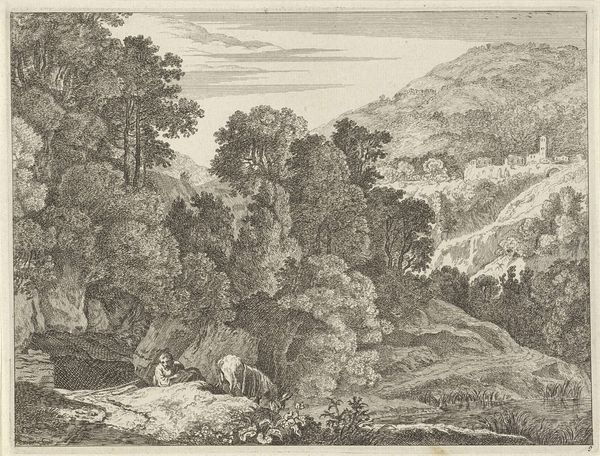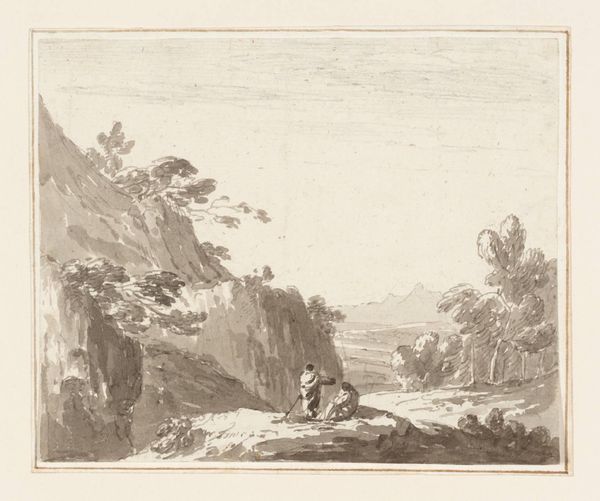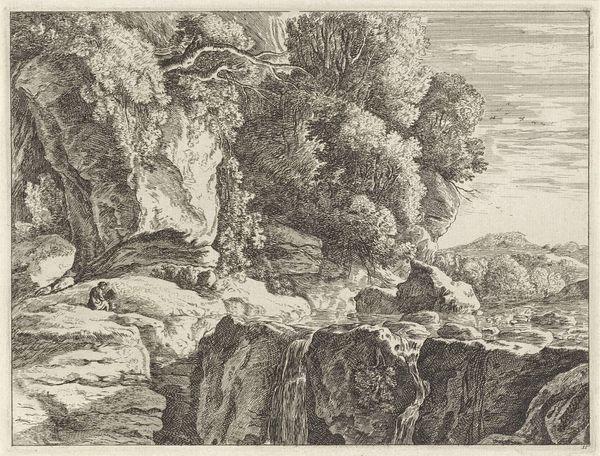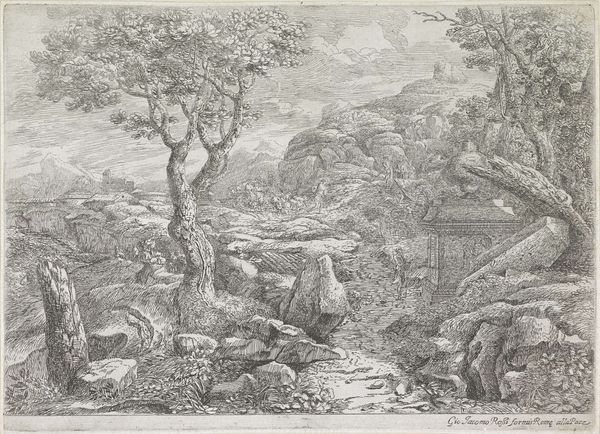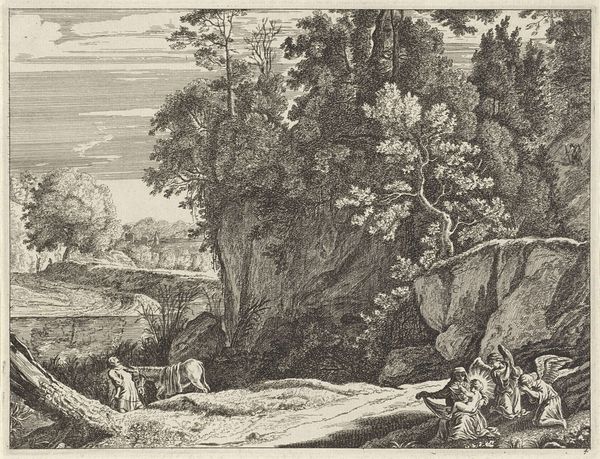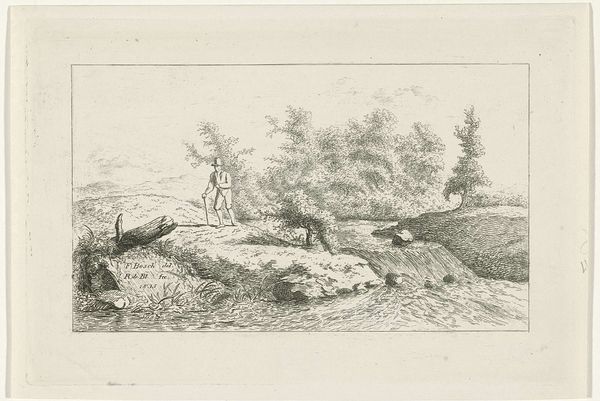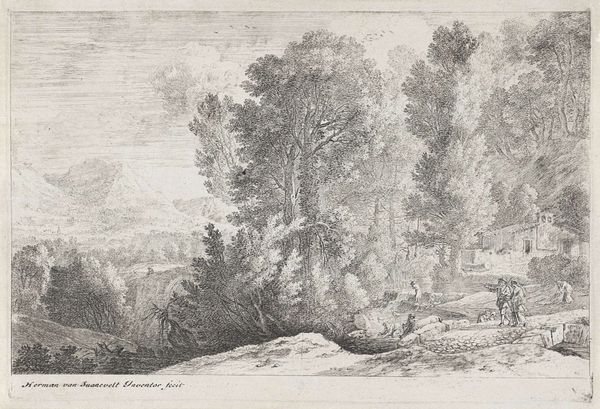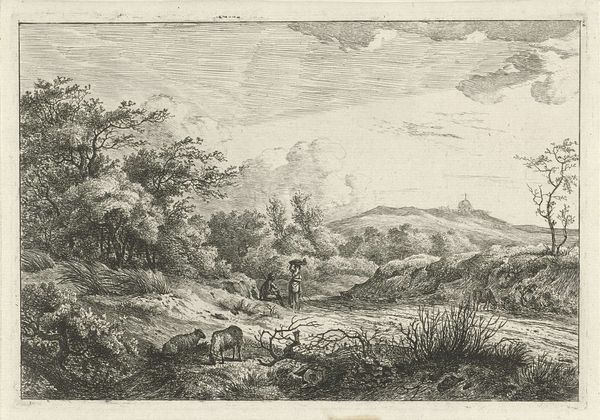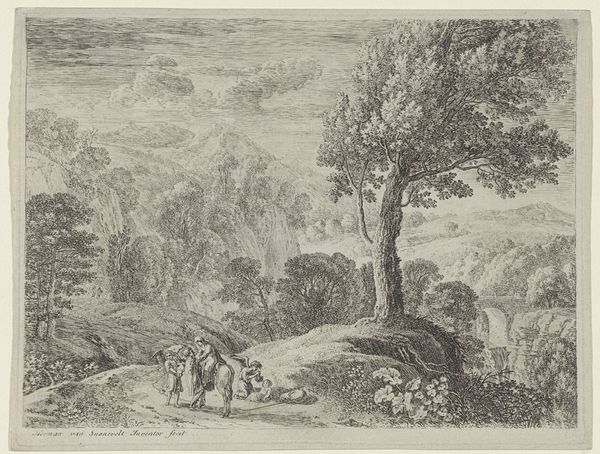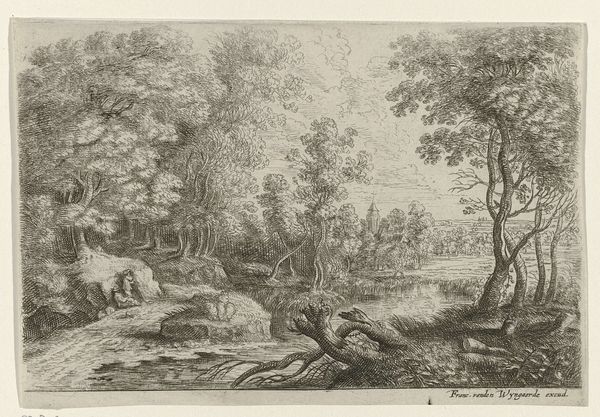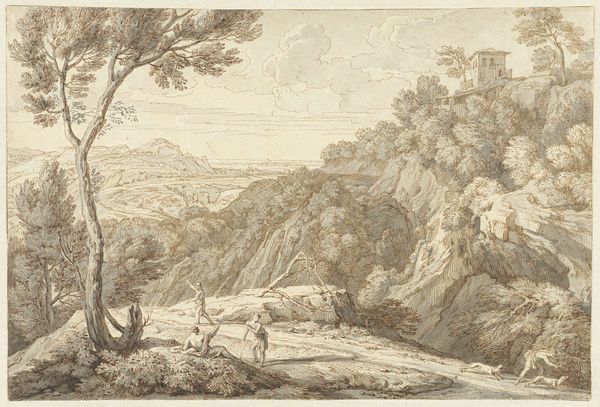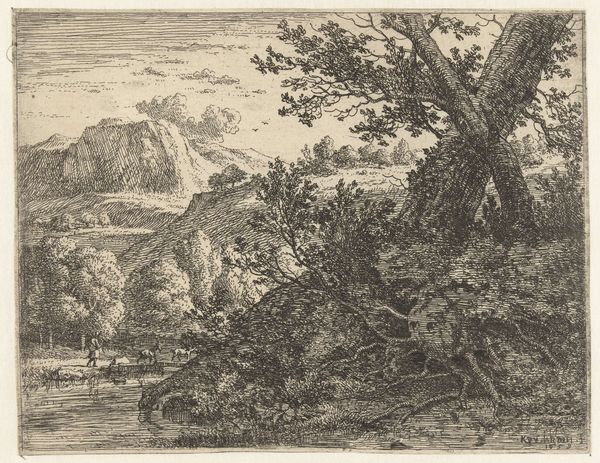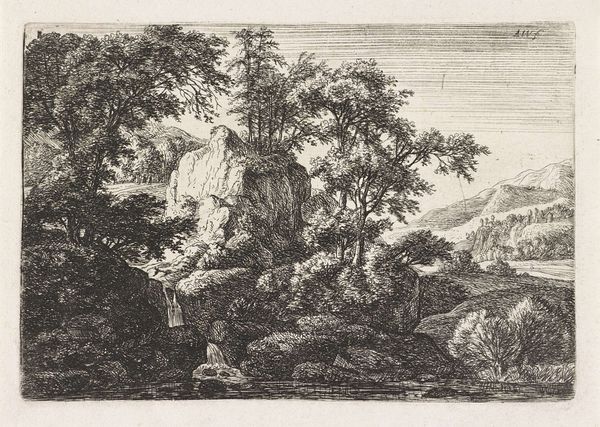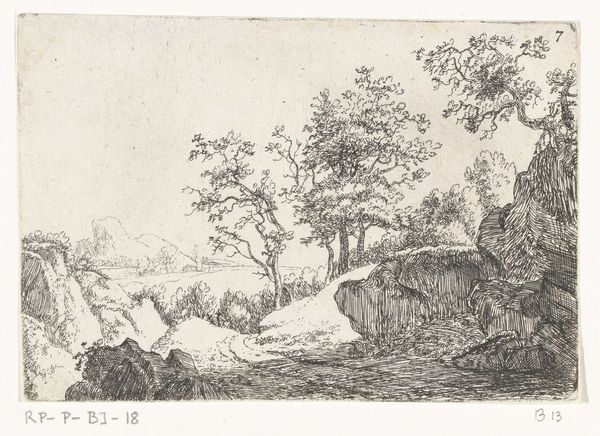
drawing, etching, pencil, graphite
#
drawing
#
etching
#
landscape
#
pencil drawing
#
romanticism
#
mountain
#
pencil
#
line
#
graphite
Dimensions: height 243 mm, width 303 mm
Copyright: Rijks Museum: Open Domain
Curator: What a striking landscape, reminiscent of the romantic period. There's a real weight to this Willem Matthias Jan van Dielen etching titled "Mountainous Landscape with Resting Figures by the Roadside." It was likely created sometime between 1815 and 1867, executed in pencil and graphite. What's your immediate take? Editor: Melancholy, certainly. The delicate lines give the scene an almost dreamlike quality. You can feel the stillness and hear the silence of the landscape, the road stretching ahead hinting at a solitary journey. The ruins on the hill—do you think they’re intentional? Curator: Definitely intentional, I think. Ruins have long held symbolic meaning, embodying the transience of human endeavor against the backdrop of enduring nature. The resting figures perhaps represent humanity finding solace or contemplation within this grand, almost sublime scene. Notice how the artist places the vanishing point almost above and behind them, the ruin overlooking this scene, yet so faint? Editor: Good point. This adds a layer of societal commentary. Are these people finding refuge in history? Were those the old roads that people actually travelled? It looks difficult terrain, especially with those cliffs—that ruin looks unreachable. There is a commentary on power dynamics perhaps? Or just class? Those men are clearly resting. Curator: It’s possible, isn’t it? Although there are conflicting understandings about its precise historical location or commissioner. The romantic landscapes of this period often explore the relationship between humanity, nature, and spirituality. The image serves to invoke nostalgia and contemplation, presenting humanity at the base of its achievement, on very tough roads. Perhaps. Editor: So it's less about a literal depiction and more about using the landscape as a vessel for broader themes. How does the graphic medium of etching play into this? Curator: The use of line work enhances the detailed textures, conveying the grandeur of nature in the Romantic tradition and yet evoking this ethereal quality you remarked upon. The pencil drawing, the graphite work gives the land a raw unrefined feel which contrasts those ethereal clouds so perfectly. Editor: The clouds, as you pointed out are striking as well, it brings to question the permanence of existence. Fascinating. Curator: Absolutely, and to that point, the whole scene embodies this feeling doesn’t it? A true artifact of artistic commentary on romantic landscape of the time. Editor: Indeed. It is a real moment in time caught to make you pause, reflect and consider existence and place within time itself. Thank you!
Comments
No comments
Be the first to comment and join the conversation on the ultimate creative platform.
